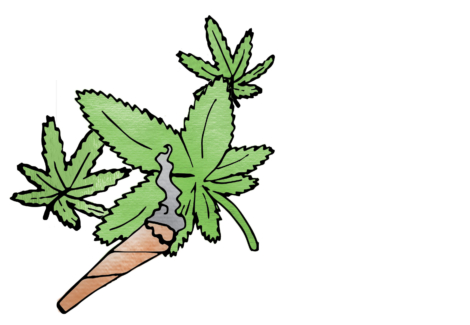Marijuana is set to become legal across Canada this week, and Canadians must be well equipped to confront any downstream effects this historic move may have.
The Canadian Tobacco, Alcohol and Drugs Survey found 3.6 million — 12 per cent of Canadians — used cannabis in 2015. Of that population, 24 per cent said they used cannabis for medical purposes.
Following legalization, individuals should be more cognizant of the effects of marijuana, and specifically ways in which it can affect the brain.
What does marijuana do to your brain?
The endocannabinoid system is a complex signaling system in the brain and surrounding tissues. Though it is not well understood, it has been shown to play a role in immune functions and the development of the nervous system. It is also the system that processes cannabis and plays a role in producing the associated neurological effects.
The system consists of endocannabinoids, cannabinoid receptors, and enzymes that transform endocannabinoids in the body.
Broadly, endocannabinoids like anandamide and 2-arachidonoylglycerol are a class of cannabinoids — chemicals present in cannabis — that bind to receptors in cells. Once bound, endocannabinoids act on CB1, a cannabinoid receptor that is found in the brain.
Cannabidiol (CBD) and tetrahydrocannabinol (THC) are the two most well described cannabinoids in marijuana.
CBD does not produce any of the psychoactive effects, and has been found to block some of the effects of THC by interfering with CB1 receptors.
Structurally, THC is similar to anandamide — a naturally occurring endocannabinoid — and has been shown to activate the endocannabinoid system.
“[CB1 receptors] are found in many brain regions that control mood, appetite, memory etc. They inhibit the release of an inhibitor transmitter called GABA and this can lead to increased activity of certain brain excitation pathways,” U of T Professor Ruth Ross explained in an email.
Ross’ research investigates the molecular pharmacology of cannabinoids.
“There are many unanswered questions about the safety and efficacy of cannabis as a medicine and about the possible harms of cannabis — especially for certain people who may be vulnerable to these effects,” Ross added. “We desperately need more solid clinical data from double blind placebo controlled studies on safety and efficacy.”
Marijuana in other areas of medicine
There is hope that medical research with cannabis and recreational users will benefit from its legalization.
For example, Ross and her team are working on developing “medicines that target the endocannabinoid system for the treatment of liver disease, pain and brain disorders.”
Ross said that many medical claims are made about cannabis, but it can actually make some conditions worse.
“It is almost unknown of any person who has overdosed on cannabis,” Andrea Furlan, Associate Professor in the Faculty of Medicine and Staff Physician and Senior Scientist at the Toronto Rehabilitation Institute, wrote to The Varsity.
According to Ross, “Cannabis — even at high doses — does not have the type of physiologically dangerous effect that we might see with opioids, which cause respiratory depression and can cause death.”
However, because of the psychoactive effects associated with marijuana, it could result in “acute psychosis, paranoia, anxiety, or fear,” and such effects could cause harm to individuals or those around them.
Despite low chances of overdosing on marijuana, several studies have sought to compare long-term use of cannabis versus alcohol in the developing adolescent brain. One study concluded that “lasting effects of adolescent cannabis use can be observed on important cognitive functions and appear to be more pronounced than those observed for alcohol.”
The Canadian Institutes of Health Research is prioritizing research on neurodevelopment, prevention, harm and treatment of problematic cannabis use, potency and product safety, social determinants of health, relationship of cannabis use and mental health, potential applications of cannabis, and pain management.
“We hope that with legalization there will be more scientists interested in this area, and that Canada will be a leader in research in the world,” Furlan said.



